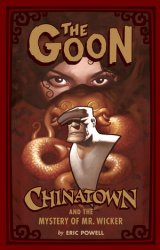These sound rather intriguing. Are they historical novels, or more like biographies?Currently reading "Bring Up The Bodies" by Hilary Mantel, the second of her trilogy about Thomas Cromwell. As with the earlier book in the series, "Wolf Hall", (for which she won the Booker Prize), this is simply superb - exquisitely written and utterly compelling.
Got a tip for us?
Let us know
Become a MacRumors Supporter for $50/year with no ads, ability to filter front page stories, and private forums.
Spoilers What Book Are You Reading?
- Thread starter Huntn
- Start date
- Sort by reaction score
You are using an out of date browser. It may not display this or other websites correctly.
You should upgrade or use an alternative browser.
You should upgrade or use an alternative browser.
I'm 75% done with 'The Art of Intelligence: Lessons from a Life in the CIA's Clandestine Service' by Henry Crumpton.
Afterwards I'll resume 'In the Garden of Beasts' by Erik Larson.
Afterwards I'll resume 'In the Garden of Beasts' by Erik Larson.
As an Amazon Associate, MacRumors earns a commission from qualifying purchases made through links in this post.
Since this is the "What Book Are You Reading" thread, here's a little trivia about reading and society, specifically with American society.
Fact: if you read at least one (1) book/novel a year, you read more than the average US American.
Fact: if you read at least one (1) book/novel a year, you read more than the average US American.
These sound rather intriguing. Are they historical novels, or more like biographies?
They are historical novels - (indeed, a bit like a sort of biography written as a novel). Mantel's prose style is exquisite, her learning profound (but lightly-worn and effortlessly woven into the tale), her characterisation superb, dialogue sharp and, historically, the books are very solid, although she doesn't mask her strong preferences (i.e. Thomas Cromwell, one of the traditional villains of this universe, a chap who represents the forces and values of a meritocracy (rather than inherited privilege), an almost secular moderniser with a sharp sense of humour, is her hero, while Thomas More, to give one example, the more traditional hero in tales of this era, is, by contrast, portrayed as an insufferable moralising intellectual snob with an appetite for martyrdom).
Actually, I can't recommend them highly enough. Mantel won the Booker Prize for the first of these books "Wolf Hall", which was published in 2009 and which ends with the execution of Sir Thomas More in 1535. The second, which has just been published, is called "Bring Up The Bodies" (a legal term from the 16th century referring to the command to 'bring up the bodies' from whatever prison cell they were held in, in order to physically stand trial), deals with the events of 1535-1536, ending with the downfall and execution of Anne Boleyn.
Initially, (according to interviews I've read) Hilary Mantel had planned to write about Cromwell, - a single book - but found that the material demanded much more detailed treatment. Then she thought it could be told in two books, but felt that the death of Anne Boleyn marked a natural ending to a second book. A third book is planned, which should bring the tale to its conclusion, with the downfall of Cromwell himself, in the summer of 1540.
I'm definitely adding these to my 'to-read' list. Thanks for the recommendation! 🙂They are historical novels - (indeed, a bit like a sort of biography written as a novel). Mantel's prose style is exquisite, her learning profound (but lightly-worn and effortlessly woven into the tale), her characterisation superb, dialogue sharp and, historically, the books are very solid, although she doesn't mask her strong preferences (i.e. Thomas Cromwell, one of the traditional villains of this universe, a chap who represents the forces and values of a meritocracy (rather than inherited privilege), an almost secular moderniser with a sharp sense of humour, is her hero, while Thomas More, to give one example, the more traditional hero in tales of this era, is, by contrast, portrayed as an insufferable moralising intellectual snob with an appetite for martyrdom).
Actually, I can't recommend them highly enough. Mantel won the Booker Prize for the first of these books "Wolf Hall", which was published in 2009 and which ends with the execution of Sir Thomas More in 1535. The second, which has just been published, is called "Bring Up The Bodies" (a legal term from the 16th century referring to the command to 'bring up the bodies' from whatever prison cell they were held in, in order to physically stand trial), deals with the events of 1535-1536, ending with the downfall and execution of Anne Boleyn.
Initially, (according to interviews I've read) Hilary Mantel had planned to write about Cromwell, - a single book - but found that the material demanded much more detailed treatment. Then she thought it could be told in two books, but felt that the death of Anne Boleyn marked a natural ending to a second book. A third book is planned, which should bring the tale to its conclusion, with the downfall of Cromwell himself, in the summer of 1540.
Since this is the "What Book Are You Reading" thread, here's a little trivia about reading and society, specifically with American society.
Fact: if you read at least one (1) book/novel a year, you read more than the average US American.
Why has reading fallen so out of grace in the modern world? When I was a kid, I was weird because I liked reading books.
I'm definitely adding these to my 'to-read' list. Thanks for the recommendation! 🙂
My pleasure. Actually, if you like history and beautifully written books, I think you'll enjoy them. Let me know how you get on with them - and remember to take the time to savour them by reading them slowly.
Since this is the "What Book Are You Reading" thread, here's a little trivia about reading and society, specifically with American society.
Fact: if you read at least one (1) book/novel a year, you read more than the average US American.
What the... 😱 I would have thought the average US American read at least two books per year, the Bible being one of them. 😀
Why has reading fallen so out of grace in the modern world? When I was a kid, I was weird because I liked reading books.
I assume you grew up in the 1990s. If you were interested in computers at that time, you would be beyond "weird". People would probably call you a "nerd" even, which at the time was quite pejorative. Today that's more of a compliment, I would say.
I'm reading Run by Dean Karnazes.
This dude is amazing, he runs 40 to 50 miles for training, he literally ran from California to New York, by running 40 to 100 miles every day.
Motivates me to push my mileage up, while I'll not get near what he does its a great motivator
This dude is amazing, he runs 40 to 50 miles for training, he literally ran from California to New York, by running 40 to 100 miles every day.
Motivates me to push my mileage up, while I'll not get near what he does its a great motivator
Attachments
Well, if I had to guess, I would say it's because people prefer mind-numbing entertainment like movies, games, etc. My philosophy professor was the one to told us (the class) that fact, but we never discussed why it's happening today.Why has reading fallen so out of grace in the modern world? When I was a kid, I was weird because I liked reading books.
I was born in the 80s, but most of the childhood I can remember was the 90s. I've always been interested in computers, but that might not have taken off until after 2000.I assume you grew up in the 1990s. If you were interested in computers at that time, you would be beyond "weird". People would probably call you a "nerd" even, which at the time was quite pejorative. Today that's more of a compliment, I would say.
I have been called a nerd many a times. I wear it as a badge of honor these days (doing a BSC in Informatics). 🙂
Well, if I had to guess, I would say it's because people prefer mind-numbing entertainment like movies, games, etc. My philosophy professor was the one to told us (the class) that fact, but we never discussed why it's happening today.
Well, I really enjoy TV, games and movies. I don't think one has to exclude any other.
I just finished 'The Art of Intelligence: Lessons from a Life in the CIA's Clandestine Service' by Henry Crumpton and found this bit in the Acknowledgments:
😛
I drafted the text over the course of a couple of years, while working and traveling. Kudos to the late Steve Jobs and the Apple guys who invented the Mac Air.
😛
Might as well post the list of ones that have have been reading of the last month or so:
1. Hunger Games books - Good but not great
2. Divergent by Veronica Roth
3. Insurgent by Veronica Roth - I liked 2 & 3 better than the Hunger Games books. There is a 3rd book planned for this trilogy and I am looking forward to it.
4. The Gregor the Overlander books - by Suzanne Collins
Just starting "The Homecoming Saga" by Orson Scott Card
1. Hunger Games books - Good but not great
2. Divergent by Veronica Roth
3. Insurgent by Veronica Roth - I liked 2 & 3 better than the Hunger Games books. There is a 3rd book planned for this trilogy and I am looking forward to it.
4. The Gregor the Overlander books - by Suzanne Collins
Just starting "The Homecoming Saga" by Orson Scott Card
I am currently reading on my Kindle...
I enjoyed the books although I found them very depressing.
Since this is the "What Book Are You Reading" thread, here's a little trivia about reading and society, specifically with American society.
Fact: if you read at least one (1) book/novel a year, you read more than the average US American.
Crazy.
I'm wondering with the popularity of the Kindle if this will go up. I find I read more now than I did before smart phones/e-readers. They are just so much easier to carry around - and you don't have to leave your house to order and start reading a book.
Haha... It's about a murdered dog, so I guess it fits that description to an extent.Werewolf literature ?
The Return of Depression Economics by Paul Krugman.
Finally getting around to the pile of books waiting patiently by my desk!
An interesting - and relevant - read.
Krugman is an excellent writer and a thinker worth paying some heed to.
Mockingjay- 3rd of the Hunger Games trilogy. Recommended, it moved me. However, I can see some people being disappointed with the ending.


Register on MacRumors! This sidebar will go away, and you'll see fewer ads.






